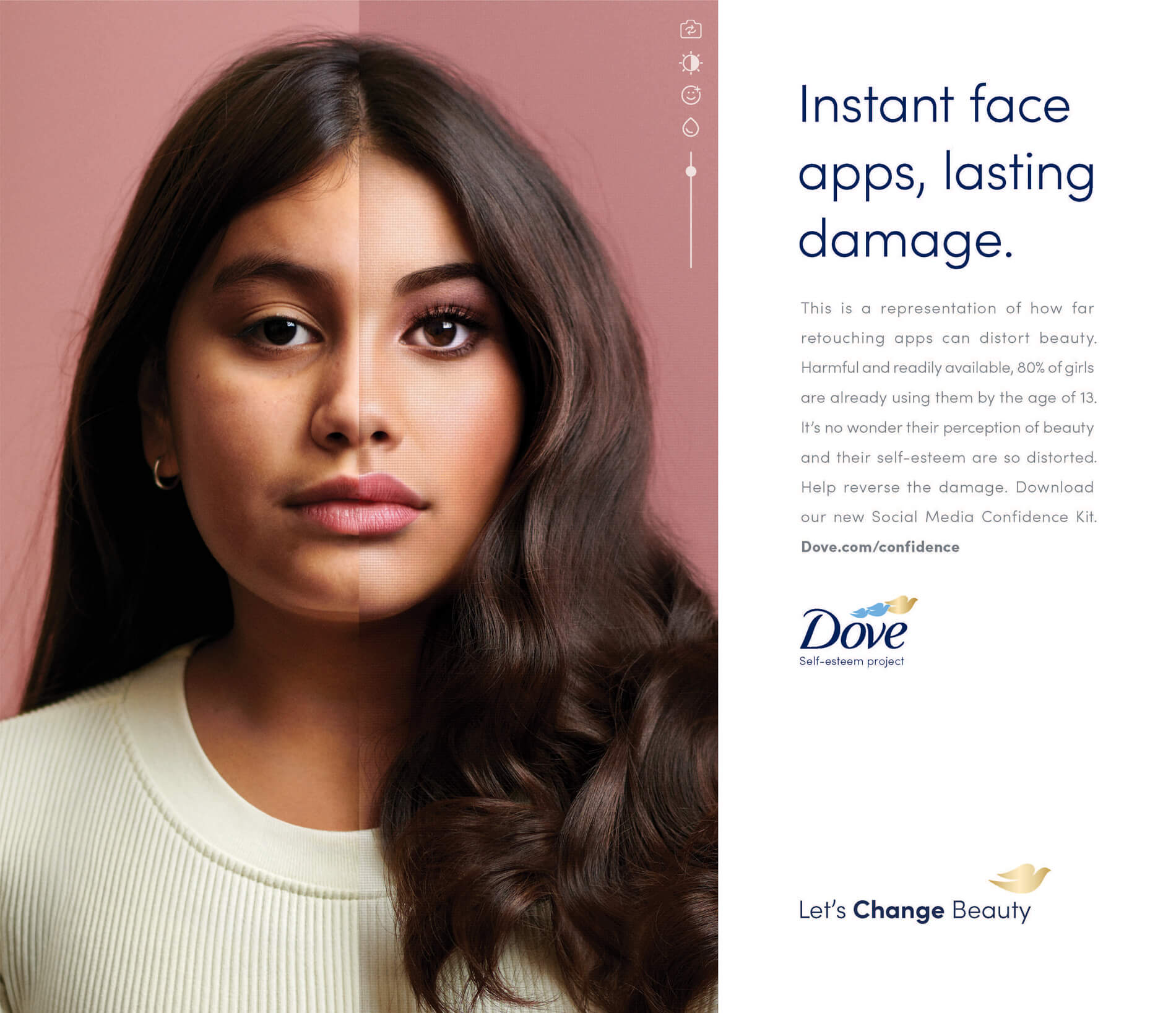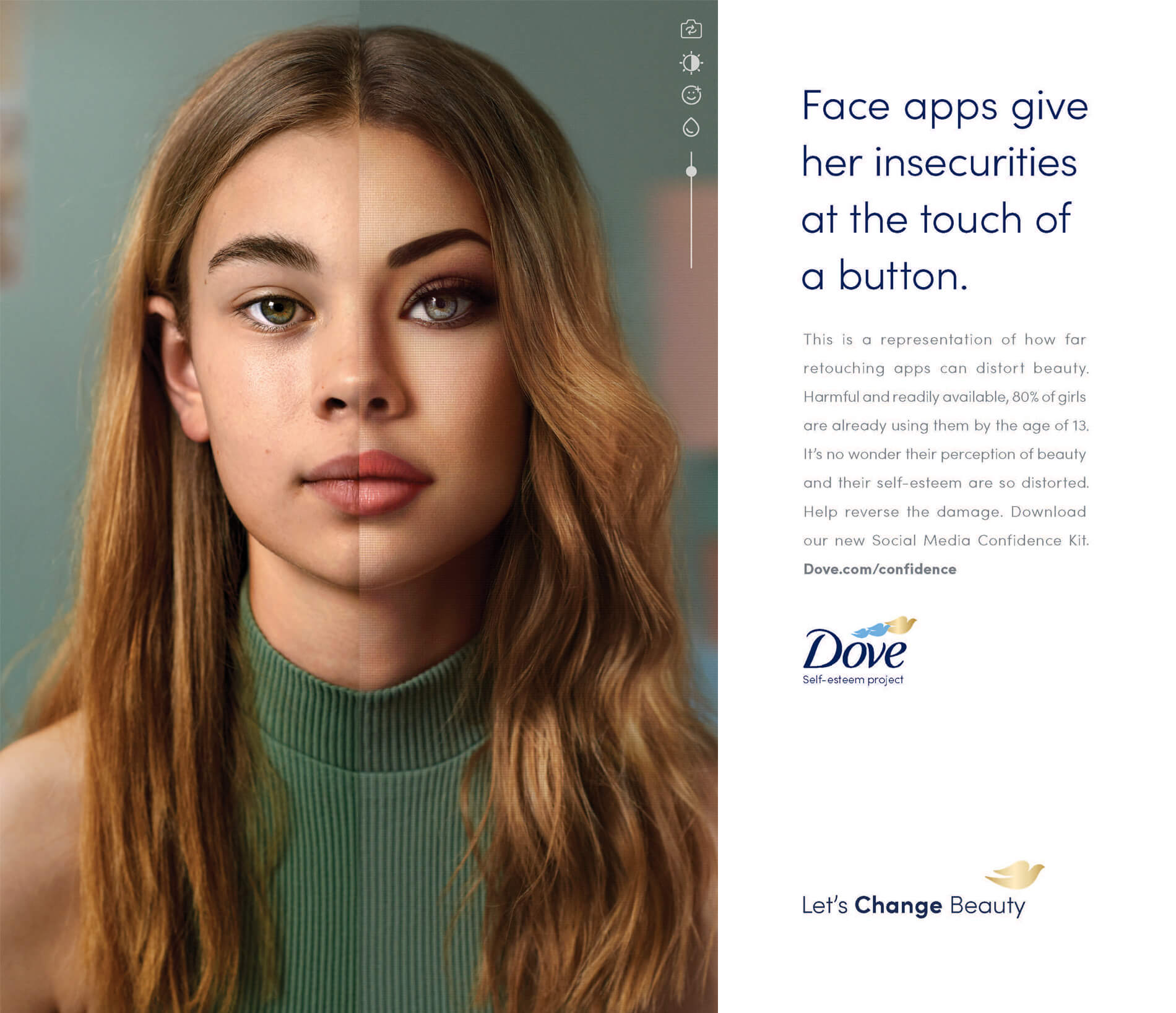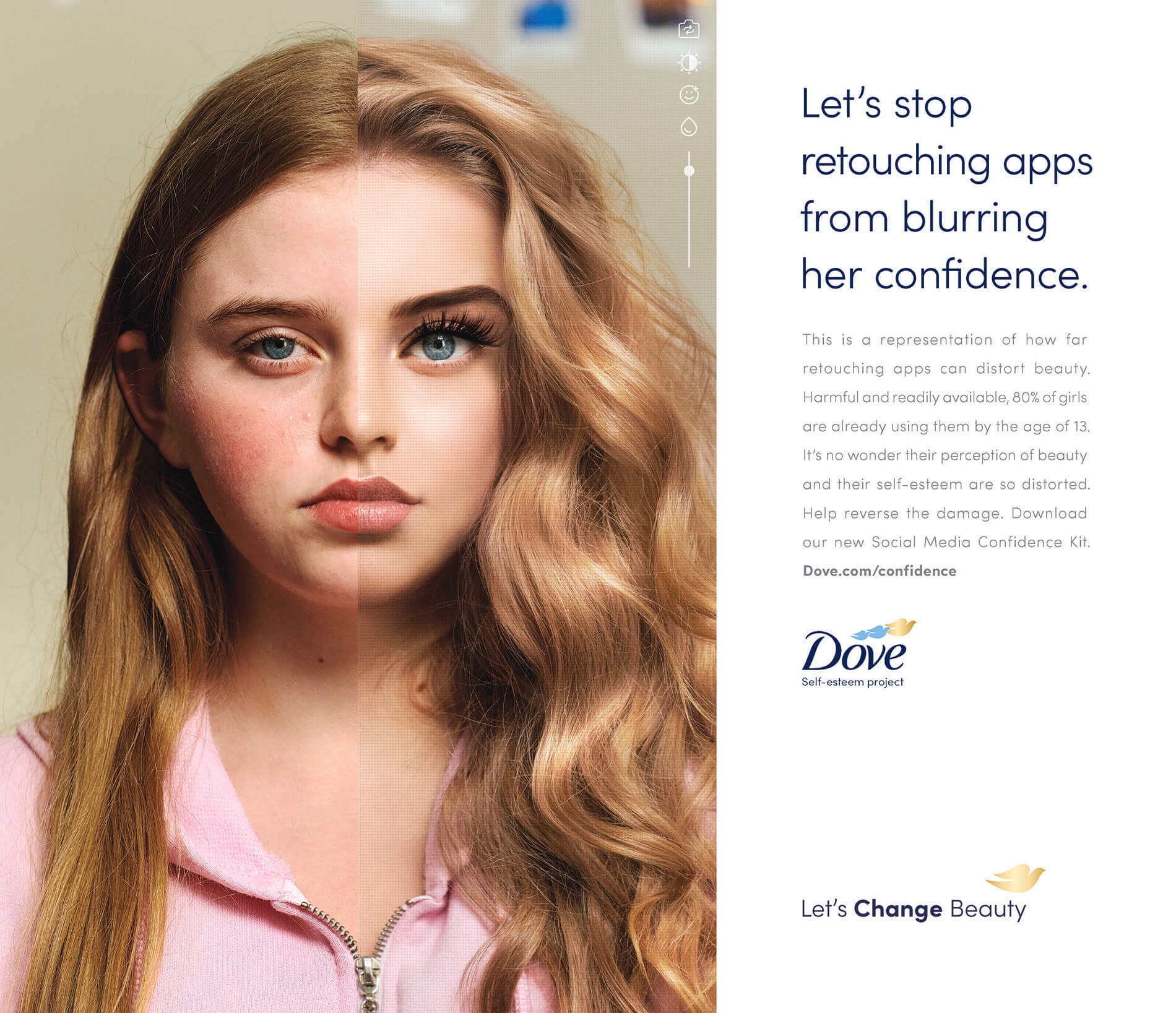Dove: Reverse Selfie | Help girls positively navigate social media
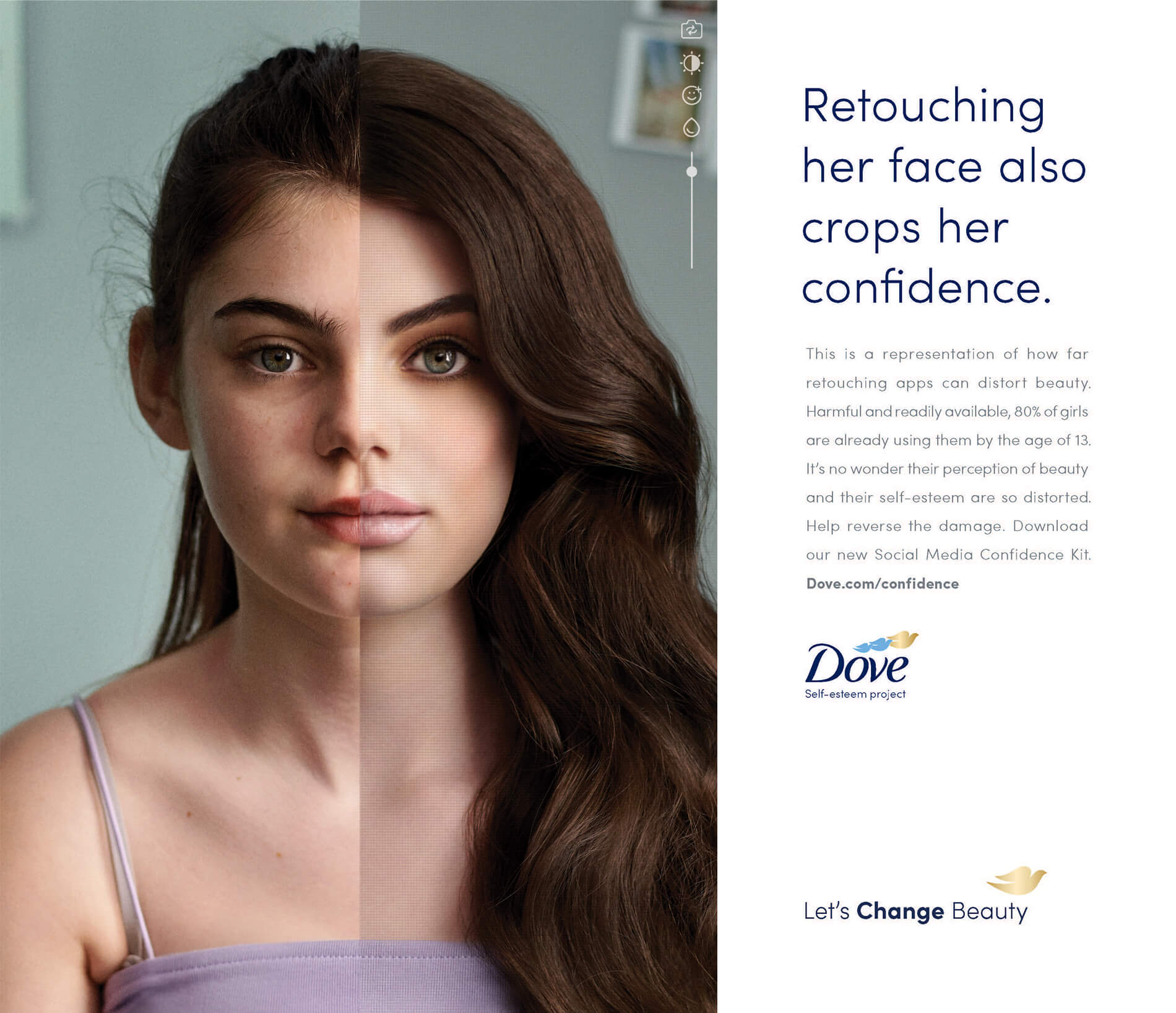
Dove is renewing the fight for real beauty standards by pushing into the activist digital era with a hard-hitting new campaign – Reverse Selfie. The crucial issue of women and girls’ self-esteem is once again top of the agenda, as Dove highlights the widespread damage caused by the trend of heavily edited selfies. “Reverse Selfie”, and is a sequel to Dove’s seminal 2006 film ‘Evolution’, which highlighted the false and unrealistic nature of the beauty ideals perpetuated by the advertising industry and the media. The film begins with an image a young woman has posted of herself on social media. The action then rewinds, reversing all the tweaks and staging that have created that image and revealing the shockingly young girl behind the picture.
By age 13, 80% of girls distort the way they look online.* Let’s change that. Social media is a big part of young people’s lives — but retouching apps and the pressure to post the ‘perfect selfie’ are hurting their self-esteem and confidence. Have the selfie talk with a girl you love to reverse the damage and celebrate real beauty.
This is a representation of how far retouching apps can distort beauty. #NoDigitalDistortion is Dove’s movement to help build confidence and positive body image on social media.
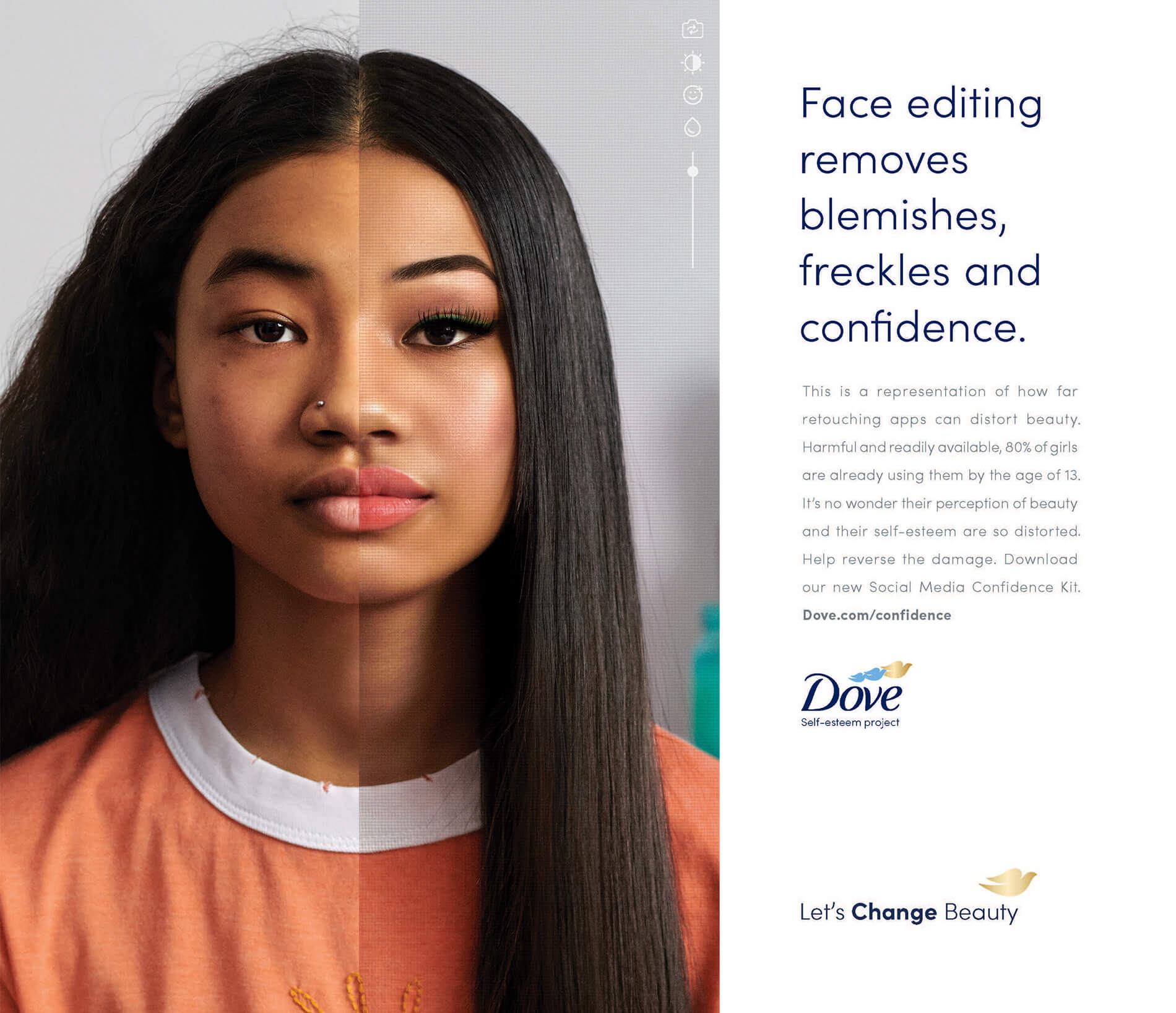
Dove Self-Esteem Project 2020 Research Behind the ‘Reverse Selfie’ Film
A new Canadian study conducted by the Dove Self-Esteem Project, which fueled the development of the ‘Reverse Selfie’ film, reinforces that we’re amid a confidence crisis. Canadian girls ages 10 – 17 years old were surveyed, and research results share that:
- 80% of girls have downloaded a filter or used an app to change the way they look in photos by the age of 13
- 67% of girls try to change or hide at least one body part/feature before posting a photo of themselves
- 59% of girls with lower body esteem regularly distort their photos before posting them on social media
- 37% of girls say they don’t look good enough without any photo editing
- 67% of girls say they would not end up feeling judged on the way they look
- 66% of girls would be less worried about the way they look
- 63% of girls wish the world would focus more on who they are instead of what they look like
Importantly, girls said that if images on social media were more representative of the way girls look in everyday life, they would feel more confident:
It’s clear from the research that we need to help girls positively navigate social media, making it more about self-expression and less about validation.
Credits
Advertising Agency: Ogilvy
Campaign: Reverse Selfie
Global Executive Creative Director Unilever: Daniel Fisher
Global Creative Director: Juliana Paracencio
Art Director: Liam Bushby
Copywriter: Alison Steven
Head of Copy: Ollie Jarrott
Head of Art: Matt Nankivell
Design Lead Integrated: Sian Hughes
Global Business Lead, WPP Unilever: Jo Bacon
Global Managing Partner: Sam Pierce
Global Business Director: Georgie Howard
Account Manager: Grace Boyle
Project Manager: Zahra Mair
Head of Integrated Production (Unilever): James Brook-Partridge
Film Producer: Sally Lipsius
Film Producer: Sue Lee Stern
Head of Art Production (Unilever): Sarah Thomson
Art Producer: Chloe Jahanshahi
Chief Strategy Officer: Ben Kay
Strategy Partner: Ila De Melloa Kamath
Strategist: Cristina Diago
Senior Social Strategist: Justin Jackson
